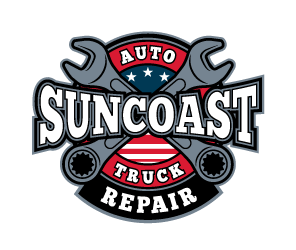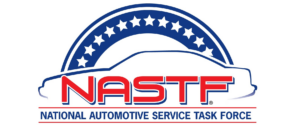Proud Member of NASTF


 Owning a car is a great way to get around, but regular maintenance is essential for keeping it running smoothly. Whether you’re a new driver or a seasoned pro, understanding the basics of car maintenance can help you prevent costly repairs and keep your car running safely and efficiently. From checking your oil and tires to replacing your windshield wipers, there are several simple tasks you can do to keep your car in good condition. In this article, we’ll cover the essential car maintenance tips every driver should know.
Owning a car is a great way to get around, but regular maintenance is essential for keeping it running smoothly. Whether you’re a new driver or a seasoned pro, understanding the basics of car maintenance can help you prevent costly repairs and keep your car running safely and efficiently. From checking your oil and tires to replacing your windshield wipers, there are several simple tasks you can do to keep your car in good condition. In this article, we’ll cover the essential car maintenance tips every driver should know.
One of the simplest ways to prevent your car from breaking down is to keep an eye on your oil levels. If you notice your oil getting low, you may need a new oil filter. For consistent results, you can use an oil change calendar to remind you when to check your oil. It’s also important to check your oil before every long trip. Driving under low oil conditions can cause extensive internal engine damage. If you notice a leak or smell oil when you check your oil, you should get your car checked out as soon as possible. Keep in mind that your car’s manufacturer will recommend an oil type for your vehicle. Using the wrong type of oil can cause a number of problems, including reduced engine life and inability to meet emissions standards. If you’re unsure which type of oil is right for your vehicle, consult your car’s manual or talk to a mechanic.
Most people don’t think about rotating their tires until they’re overdue for a change. But regular tire rotation is an essential maintenance activity that can extend the life of your tires and improve your car’s handling and fuel efficiency. Tire rotations are normally included in standard oil changes, so make sure to keep an eye on the calendar. If you don’t get regular oil changes, you may want to consider visiting a mechanic monthly to save time and money. To rotate your tires, you’ll need a jack and a wheel wrench. Be sure to check your owner’s manual for specific instructions. Tire rotations are most often done on cars with all-wheel-drive or four-wheel-drive systems. It’s also common for heavy-duty trucks to have their tires rotated every 5,000 miles. Depending on the type of driving you do, you may need a new set of tires before rotating them once.
Your brakes are what stop your car, so it’s important to check them regularly for any warning signs. If you hear squealing or grinding noises, get them checked out right away. You may just need to replace your brake pads, but it’s better to be safe than sorry. Where to check your brakes The best place to check your brakes is a parking lot with plenty of space and no cars around. You can also do a visual inspection while driving, but you should never fully apply your brakes while you’re moving. When inspecting your brakes, check for leaks, wear, and debris. If you see something that looks out of the ordinary, be sure to tell your mechanic.
Most of us check our windshield wipers when it first starts raining, but many of us neglect to check them again until it’s too late. Wipers are one of the most important parts of your car’s safety features. They help keep your visibility clear when it’s wet or snowy outside. You can check your wipers by opening and closing them a few times. If you notice any signs of wear or damage, be sure to replace them before it’s too late. You should also be sure to replace your wipers at the first signs of winter. In addition to inspecting your wipers, you should also change your washer fluid every few months. This protects your wipers and helps you keep your visibility clear no matter what the weather is like.
Keeping your battery clean and protected helps it last longer and charge more efficiently. Batteries can collect dirt and grime when they aren’t covered, so it’s important to check them regularly. That doesn’t mean you should use your car’s battery as a surface to clean your garage floor. It’s best to use a non-abrasive cleaning solution and a soft cloth to avoid damaging the terminals. Once your battery’s clean, you can protect it with a spray-on or roll-on anti-corrosion product. If you notice signs of corrosion or damage, it’s time to replace your battery. Batteries have a lifespan of about five years, so you should check your warranty and maintenance schedule to see when it’s recommended for you to replace your battery.
Air filters catch dirt and debris from entering your engine. When they get clogged, they can reduce your engine’s performance. Many cars have an indicator light that reminds you when it’s time to replace your air filter. If yours doesn’t, you can check the manual or look for a sticker on the engine that indicates the filter’s location. Many mechanics also offer air filter services, so you may want to check with your local garage for pricing. You should change your air filter about every 12,000 miles, or as recommended by your car’s manual. Air filters help your engine run more efficiently and prolong the life of your engine. If you neglect your air filter, you may notice decreased fuel economy, reduced engine power, and higher emissions.
Regularly waxing your car will protect it against UV damage and make it look great. But that’s not all. Paint protection also prevents scratches and scuffs, making it easier to clean your car and preventing rust. When to wax your car You can wax your car at any time of year, but fall and winter are the best times to do it. It’s cooler outside, so you don’t have to worry about hot wax dripping on your vehicle’s paint. Plus, there’s less sun to damage your paint and the weather is less likely to be rainy or snowy, which can damage the wax job. What to use for waxing There are many different types of car waxes on the market. Be sure to choose one that’s made for cars. Certain waxes are made for certain paint types. You may want to look for one that’s made for cars with clear coat paint.
You can keep an eye on your power steering fluid just like you would with your oil. If you notice your fluid getting low, you may need a new fluid filter. Most cars have a reservoir that holds the fluid and has a “low fluid” light to remind you when it’s time to get checked out. Your owner’s manual will recommend how often you should check and replace your fluid. It will depend on how you drive and the weather conditions where you live. Low fluid levels can cause a variety of problems, including reduced steering responsiveness and failure to meet emissions standards. It’s also a good idea to flush your system every 40,000 miles or once a year. Flushing the system removes contaminants and improves steering performance.
Regularly visiting your mechanic for a checkup can help you catch small issues before they become costly repairs. Most mechanics offer the same types of periodic maintenance service plans that your car dealer offers. They’ll include standard maintenance items, special services, and any repairs you may need. While it’s true that preventive maintenance doesn’t come cheap, it’s far cheaper than repairing damage caused by neglecting your car’s maintenance. Mechanics are your best line of defense against common car problems. They can help you identify problem areas before they become costly issues. For these reasons, it’s important to visit the mechanic at regular intervals. It’s a good idea to have your car inspected every year or 10,000 miles, whichever comes first.
Knowing when to check your oil, when to rotate your tires, when to change your windshield wipers, when to clean and protect your battery, when to check and replace your air filter, and when to take your car for regular checkups can help you prevent costly repairs and keep your car running safely and efficiently.




